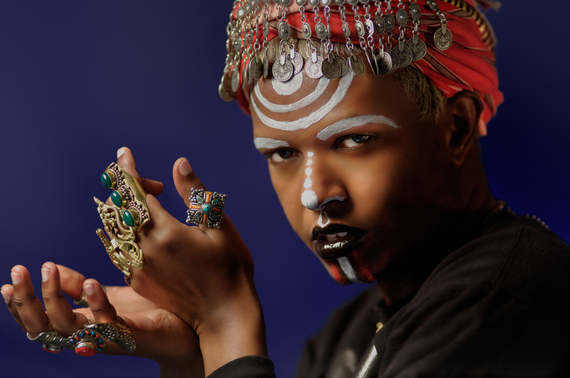I have always been a loner. Even as a child, when my family and friends were off attending parties I would be sequestered in my room, sketchpad in hand, stereo by my side, listening to seductive R&B. Solitude was something I took for granted. Coming from a large family I needed solitude in order to think straight and paint my way out of confusion. My parents were accepting of the fact that I kept to myself and they respected my decision even though it went against my Somali upbringing, a culture rooted in boisterousness and joie de vivre.
When I was younger, my solitude didn't need rationalizing. But as I matured and became an adult my solitude needed an anchor, a reason for being. I gravitated towards writing and I ended up publishing a book called Fairytales For Lost Children, a collection of short stories about the queer Somali experience, which was well-received and won an award called the Polari Prize for Best First Book. I am delighted by the attention the book has received and I consider myself privileged. But there are many moments when the loner within me resurfaces and I find myself seeking solace and comfort in solitude.
I am currently working on a novel called The Mermaid Who Forgot How To Breathe Underwater whose lead character is a female artist who has chosen a monastic approach to her life and work. The piece pivots around what happens when her self-imposed exile is disrupted by the intrusion of people she cares very deeply about, people who are very much present in the world and want to interact with it on all levels. My protagonist, Señora Zahra, is a dream to write. She doesn't have any of the uncertainties that I harbor -- my inherited fear of losing myself in silence; my apprehension about who I am and where I am coming from. She is robust and fully realized. She doesn't look outside of herself for reasons why she does the things she does. Her eccentricities make her feel at peace and content. In the digital age, when we are actively encouraged to constantly and continuously share our fears and desires, Señora Zahra is a wish-fulfilling character who is unrepentant in her aloneness. She is someone who is unafraid of losing herself in the quiet spaces in between.
My fear of solitude, although it is irrational, stems from very real circumstances. I have suffered from psychosis in the past, a mental state that rendered me paranoid and afraid of my own company. As I survey the digital landscape, I realize that one doesn't have to suffer from psychosis in order to crave conversation, community. It is the most natural aspect of human life, this desire for kinship. We want to share our triumphs and we also want to discuss our troubles. One doesn't need to be mentally ill to long for companionship.
I have a journal that contains this quote by Eve Ensler:
"Cherish your solitude. Take trains by yourself to places you have never been. Sleep out alone under the stars. Learn how to drive a stick shift. Go so far away that you stop being afraid of not coming back. Say no when you don't want to do something. Say yes if your instincts are strong, even if everyone around you disagrees. Decide whether you want to be liked or admired. Decide if fitting in is more important than finding out what you're doing here. Believe in kissing."
I am still in development as a writer and as an individual. I am unlearning all the unhealthy habits I have picked up over the years. I am learning to heal all the psychic scabs that I have picked at over time. I am learning to trust the small, scared animal within.
Diriye Osman's collection of short stories, Fairytales For Lost Children (Team Angelica Press) won the 2014 Polari Prize for Best First Book. He is the first African-born author to win this award. You can purchase Fairytales For Lost Children on Amazon.

